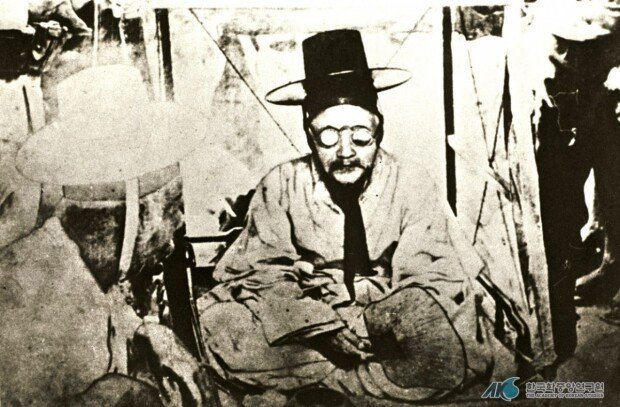Documents on righteous armies return home in 110 years
Documents on righteous armies return home in 110 years
Posted August. 15, 2024 08:14,
Updated August. 15, 2024 08:14

“My youngest brother is not here with us any longer...Shedding tears, I fell dizzy. Such an indescribable pain felt deep inside would frustrate and resent me to death.”
Heo Gyeom, one of Korea’s leading independence activists, wrote this sorrowful message after Heo Wi, his brother who also led anti-Japanese righteous armies, was apprehended by Japanese colonial invaders to be put at risk. After the military of the Empire of Korea was disassembled during Japanese rule in August, 1907, the two brothers joined the Thirteen Provinces Alliance of Righteous Armies formed centering around Yangju, Gyeonggi Province. The elder brother maintained his dignity and determination even at the moment that he could lose his younger brother. In a letter to his fellows, he wrote that sovereignty would be reclaimed based on a greater depth of mutual companionship and protection. Having said that, Heo Wi ended up being executed at Gyeongseong Prison (Seodaemun Prison) just four months after his arrest.
Records of righteous armies against Japanese colonialism have finally been retrieved since the Japanese military police kept them for 110 years or so. The Korea Heritage Service and the Overseas Korean Cultural Heritage Foundation unveiled 13 documents returned from overseas regarding righteous armies at the end of the Empire of Korea, the sourcebook on Korea-Japan relations, and the poem “The Rhyme for the Hall for the Tomb in Johyeon” at the National Palace Museum of Korea on Wednesday, a day before the 79 National Liberation Day.
These materials released on Wednesday consist of 13 documents written from 1851 to 1909 about righteous armies at the end of the Empire of Korea – including writings by Heo Wi, who served the Thirteen Provinces Alliance of Righteous Armies, and letters sent by righteous army leader Choi Ik-hyeon. Given that they are made of two handrolls, it is presumed based on their preface that Nagaharu Akutagawa, then a Japanese military policeman, collected and transformed them in their present format. The collector titled the handrolls “The Letter from a Leader who Went against Japan at the End of the Korean Empire Period” and “The Manifesto by the Leader of a Mob who Stood against Japan at the End of the Korean Empire Period,” respectively.
Many parts of the documents clearly show how determined righteous army leaders were. In February 1909, Yoon In-soon, a righteous army leader, penned a poem saying, “We, while alive, will be the people of the Empire of Korea, and be the phantoms of the Empire of Korea in the afterlife.” It is also a heart-wrenching thing to read Heo Wi’s letter where he showed his determination to help armies join forces to get the upper hand even by May 13, 1908 when the Japanese military police arrested him. The documents also provide a window into the realities of righteous armies struggling with shortages of military supplies and internal discord.
사지원 기자 4g1@donga.com
Headline News
- Joint investigation headquarters asks Yoon to appear at the investigation office
- KDIC colonel: Cable ties and hoods to control NEC staff were prepared
- Results of real estate development diverged by accessibility to Gangnam
- New budget proposal reflecting Trump’s demand rejected
- Son Heung-min scores winning corner kick







